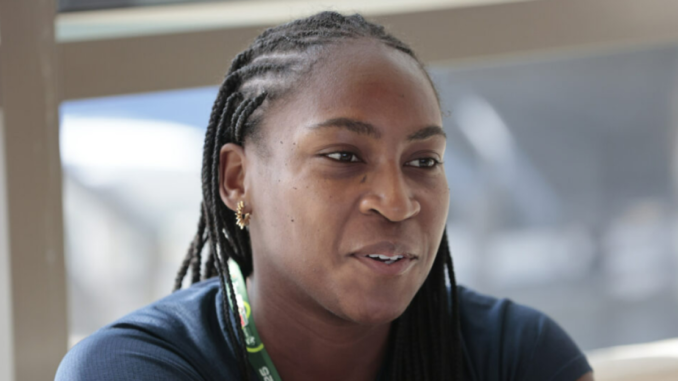
The world of professional tennis has recently been embroiled in a complex and sensitive discussion surrounding player interactions, specifically focusing on the relationship between Elena Rybakina and her former coach, Stefano Vukov. Coco Gauff, a prominent voice in the sport, has weighed in on the matter, offering her perspective on the delicate balance of power dynamics and the potential for exploitation within such professional relationships. Her comments have added another layer to the ongoing conversation, highlighting the importance of awareness, education, and support for players navigating these complex situations.
Gauff’s remarks come amidst a backdrop of allegations and counter-allegations, with Rybakina recently ending her long-term coaching partnership with Vukov. The circumstances surrounding the split have fueled speculation and debate within the tennis community, prompting discussions about the appropriate boundaries between players and their coaches. Gauff, known for her maturity and thoughtful approach to issues both on and off the court, addressed the broader context of such relationships, emphasizing the potential for abuse of power and the challenges faced by athletes, particularly young ones, in recognizing and addressing such situations.
“It’s a tough situation,” Gauff acknowledged, speaking to the complexities of player-coach dynamics. “These relationships are very close, and sometimes it’s hard to see the line between what’s appropriate and what’s not.” She highlighted the inherent power imbalance that often exists in such partnerships, with coaches holding significant influence over a player’s career, training, and overall development. This power dynamic, she suggested, can create an environment where exploitation or abuse might occur, even unintentionally.
Gauff’s most poignant observation centered on the fact that victims of such situations may not even be aware they are being victimized. “Many times victims don’t even know they are,” she stated, underscoring the subtle and insidious nature of certain forms of abuse. She explained that manipulation, emotional control, and other forms of non-physical abuse can be particularly difficult to recognize, especially within the context of a close and trusting relationship. This lack of awareness, she suggested, makes it even more challenging for players to come forward and seek help.
The young American’s comments have resonated with many within the tennis world, sparking further discussion about the need for greater awareness and education regarding appropriate conduct in player-coach relationships. Many have echoed her concerns about the potential for abuse of power and the challenges faced by players in recognizing and addressing such situations. There have been calls for increased transparency and accountability within the coaching profession, as well as better support systems for players who may be experiencing difficulties.
Gauff’s perspective also touched upon the importance of open communication and trust between players and their support teams. She emphasized the need for athletes to have access to independent advisors and resources, individuals who can provide objective guidance and support without any potential conflicts of interest. This, she suggested, could help players navigate complex situations and make informed decisions about their careers and well-being.
The conversation surrounding Rybakina’s split with Vukov and Gauff’s comments has brought to light the broader issues of power dynamics and potential exploitation within professional sports. It has also highlighted the need for more open dialogue and proactive measures to protect athletes, particularly young ones, from such situations. The tennis world, like many other professional sports, is grappling with these complex issues, seeking to create a safer and more supportive environment for all athletes.
Gauff’s willingness to speak out on this sensitive topic reflects her commitment to using her platform to advocate for positive change. Her comments have added a valuable dimension to the ongoing discussion, emphasizing the importance of awareness, education, and support for players navigating these complex relationships. As the conversation continues, it is hoped that Gauff’s words will contribute to a greater understanding of the challenges faced by athletes and inspire further action to protect their well-being. The Rybakina-Vukov situation, while specific to those individuals, has served as a catalyst for a much broader discussion about the need for greater transparency, accountability, and support within the world of professional tennis. Gauff’s contribution to this dialogue is a significant one, and it underscores the importance of having prominent voices speak out against potential abuses of power.
Leave a Reply